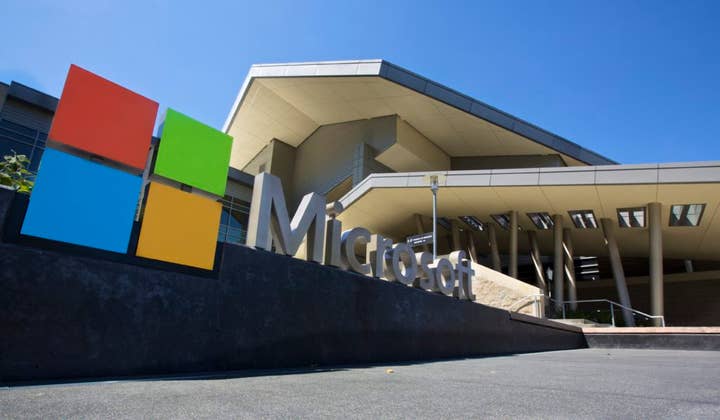Is Xbox’s future more vibrant without Activision?|Viewpoint
Over the past year or two, some dissension has crept into the generally enthusiastic response to Microsoft’s current platform strategy. Game Pass has been helpful, the Xbox One X is an impressive piece of console hardware, the Xbox One S is a remarkable marvel of bang-for-the-buck performance, and the company’s officers and spokespeople, all the way down to Phil Spencer, have mastered the art of making all the right noises to make video game consumers feel good about the platform.Over the past year or two, some dissension has crept into the generally enthusiastic response to Microsoft’s current platform strategy. Game Pass has been helpful, the Xbox One X is an impressive piece of console hardware, the Xbox One S is a remarkable marvel of bang-for-the-buck performance, and the company’s officers and spokespeople, all the way down to Phil Spencer, have mastered the art of making all the right noises to make video game consumers feel good about the platform.
The one catch is that it’s getting more difficult to overlook the lack of first-party exclusives.
Speaking from personal experience, my Series X got even more play than my PS5 in the first year or two for exactly that reason; the outstanding in reverse compatibility of the new systems, and the back brochure Game Pass offers, were excellent substitutes in the early going before new software application appeared. The reliance on Sony’s first-party engine, which has recently picked up speed, and on multiplatform releases has become increasingly problematic.
This viewpoint is neither novel nor debatable; it has actually been voiced frequently in recent months, and especially in the past week after the UK CMA’s decision to block Microsoft’s acquisition of Activision Blizzard, which had actually been the excellent white expect fixing Xbox’ software application pipeline issues.
The disappointing response to Redfall, the first Xbox exclusive title from legendary Bethesda studio Arkane, and one of the games on which this year’s wish for Xbox had been pinned (along with the unquestionably more high-profile Starfield), has only increased concerns about the company’s ability to deal with the challenges it now faces. The Xbox team doesn’t have a deep enough bench to afford to have swings go unanswered right now, especially not a few days after the strategy of the entire department was called into question.
Now that Sony’s first-party engine is revving to full speed, the Xbox’s continued reliance on replacement and multiplatform releases has become a serious problem.
In light of this, I feel more optimistic than I have in a long time about the path Xbox will take in the future. In short, the reason for this optimism is that Microsoft has been told it can’t buy its way out of the problem it faces; as a result, the company has no choice however to innovate its way out of the problem, and it has actually frequently been in such moments in the past that Microsoft has actually been at its most innovative, intriguing, and dangerous to its competitors.
In many ways, reaching for the chequebook was the easy way out. Assuming the Activision Blizzard deal is ultimately off the table, whatever Microsoft chooses to do instead will necessitate significant change and turbulence, but it is only fair that this new chapter be an exciting one for Xbox and the video games industry as a whole.
The implicit assumption here is that Microsoft continues to place a high priority on the video game firm even after its takeover bid is rejected.
According to recent commentary by Chris Dring, the idea that Microsoft is only dabbling in the video games sector and would become bored in the face of any setback has followed the Xbox from the very beginning. As other customer gadget organisations like Zune and Windows Phone were shut down and service offerings like Azure and Office 365 came forward, it was reasonable to wonder how the video games company would fit into Satya Nadella’s vision for the company’s future. The original Xbox was a kind of strange guerrilla effort within Microsoft that sat annoyingly along with the rest of the services.
Xbox didn’t only survive those tough times; it became an integral element of Microsoft’s customer identity and offering, while also deftly positioning itself to become a future cornerstone of Microsoft’s Azure business. Even if Microsoft is ultimately blocked from spending $70 billion on acquiring a video game publisher, the fact that it wanted to do so and was willing to fight the case for doing so to sceptical regulators and competitors authorities who have actually been Microsoft’s bête noire in the past remains an important piece of information.
Microsoft may be many things, but unpredictable isn’t usually one of them; the company may want to make the largest acquisition in its history one day, and then say “nah, we do not care about that sector now” the next, but such a 180-degree turnaround is more typical of a company like Google, and thus more concerning for investors, than it would be for Microsoft.
The negative reaction to Redfall has further increased doubts about Xbox’s plans to address existing problems.
The Activision Blizzard quote was approved by Microsoft’s highest-ranking executives, suggesting that the company’s board of directors is convinced that it needs a leadership position in the video games industry as part of its long-term strategic vision. The cancellation of this quote doesn’t necessarily mean that Microsoft has an extra $70 billion lying around to invest in building its video games company (that’s not how the math of mergers and acquisitions works), but the company’s commitment to succeeding in this sector remains strong and can be put to use in other ways.
Acquiring a market leader isn’t your sole option for making headway in the video game industry. Sony and Nintendo have never bought a major publisher to lock down their market share, and perhaps more importantly for Microsoft, the company was able to do quite well in the Xbox 360 generation without buying a major publisher. It’s clear that buying a big publisher with some big annual franchises wasn’t the only way to build out the Xbox software application pipeline and offset dragging in first-party studio output, and it might not have even been the best way.
There isn’t enough depth on the Xbox bench right now to let swings get left out.
The seriousness of the threat posed by the Activision Blizzard takeover has become buried in the protracted discussions of the company’s stock price. Merging two large companies is difficult because of the inherent differences between their corporate and workplace cultures, the inherent tensions between management styles and concerns, and the inherent tensions between overlapping functions, which offer some opportunity for cost savings but also create friction and potential unhappiness. Microsoft is a massive company compared to Activision Blizzard, but the Xbox division that would actually be taking in the publisher is not, and there would be contention and jostling for position as the new, merged identity of the two businesses came into being.
Any substantial change to a popular customer IP also has an inherent risk. Keeping a video game franchise efficient and relevant year after year, after year, is a very specialised talent that very few companies accomplish very effectively. Even with the best intentions, the upheaval of a major acquisition in the video game industry can quickly end up harming IP value by accident. This has happened so frequently in the past that many players now assume by default that large acquisitions will eventually eliminate the identity and quality of studios and franchises they enjoy.
Xbox needs games in development, so what are the possibilities? Nintendo built its first-party studio system almost entirely internally, while Sony has actually done so by carefully partnering with third-party designers and then acquiring them once the working relationship was already reputable. Neither is as fast as buying a major publisher, but it doesn’t have to be slow, either; and with good management and tactical guidance, you may end up with not just a strong studio structure, but also an enormously valuable stable of original IP.
Risk can be reduced by focusing on individual studios; while acquisitions have a mixed track record in the video game industry as a whole, Sony’s recent studio purchases have been unusually successful. For studios to continue to be productive and creative after being acquired, it is important to establish a solid working relationship with them before making a purchase offer. Instead of being motivated by the heavy financial weight and associated expectations and risks of a single large acquisition, this strategy encourages the larger business to function as a kind of umbrella under which numerous different creative cultures can grow.
It’s difficult to shake the feeling that the impending Activision Blizzard offer had actually relegated Microsoft’s efforts to being in 2015’s toys, robbed of the attention and value they should have received. Of course, Microsoft has actually already been doing this for a long time, buying independent studios, getting a pre-rolled set of high-quality studios through its acquisition of Zenimax, and developing some internal first-party capability along the method. At various points over the past twelve months, I’ve wondered if the lacklustre state of Xbox’s software lineup was due in part to the company viewing the Activision Blizzard offer as a panacea, a solution to the platform’s problems that meant there was no real need to make a major push with existing resources.
It’s hard to shake the feeling that previous acquisitions were pushed to 2015’s toy chest because of the coming Activision offer.
Microsoft owns a number of studios with an impressive track record of success; the company’s ability to release a high-quality video game like Hi-Fi Rush to relatively little fanfare demonstrates what it is currently capable of with its resources, while the studio’s disastrous failure with Redfall shows how quickly those resources and skills can be wasted. Customers losing faith in Xbox as a platform for high-quality exclusives is a problem, but keeping talented creatives inspired and enthusiastic when they don’t feel like the structure that they’re working within allows them to attain their full potential is potentially more dangerous. When a video game is poorly made, it’s usually the designers themselves that are the most disappointed.
Maybe if the Xbox division hadn’t been so preoccupied with the idea of buying the biggest possible hammer to squash its competitors that it forgot to focus on developing its studio capability, Redfall would have gotten the time, attention, and resources it needed to meet Arkane’s previous requirements. Perhaps not, but it’s reasonable to wonder if, behind the public anger Microsoft is demonstrating over the CMA’s judgement, there aren’t some people in the company’s existing studios feeling silently delighted that the focus of efforts to build Xbox’ software application pipeline and major franchises will now go back to them. Even after consulting with in-house specialists, it remains unclear how much air was actually being sucked out of the room by the Activision Blizzard figure.
Nonetheless, it is undeniable that Microsoft has fallen short in providing the quality and quantity of software that was promised by the companies it has acquired over the past five or two years (all of which have been quite excellent businesses and studios to purchase, at least at stated value). Even if the focus on acquiring Activision isn’t the root cause of whatever isn’t operating as it should, it looks to have actually deflected attention from fixing whatever it is that isn’t working as it should.
Without that acquisition (assuming the appeal of the CMA’s decision fails and/or the European Commission or FTC also choose to block the offer), we should hopefully see the existing internal studio system beginning to provide more consistent results, in addition to the return of Microsoft’s hunger for smaller, smarter acquisitions that fill the gaps in its studio line-up and software application pipeline.
There’s simply one wrinkle; it’s ended up being harder and harder to disregard the absence of first-party exclusives.
The outstanding in reverse compatibility of the brand-new systems, and the back brochure Game Pass offers, were excellent substitutes in the early days prior to brand-new software application showed up– speaking personally, my Series X got even more play than my PS5 in the very first year or two for exactly that factor. As Sony’s first-party engine has actually spun up to speed, the ongoing dependence on that substitute and on multiplatform titles has actually ended up being a substantial issue.
There’s absolutely nothing brand-new or questionable in this take– it’s a belief that’s been revealed frequently in current months, all the more so in the previous week following the UK CMA’s choice to obstruct Microsoft’s acquisition of Activision Blizzard, which had actually been the excellent white expect solving Xbox’ software application pipeline issues.
The issues about how Xbox can deal with the difficulties it now deals with have actually just been magnified by the frustrating reception for Redfall, the very first Xbox special title by storied Bethesda studio Arkane and among the video games upon which this year’s wish for Xbox had actually been pinned (together with the undoubtedly much more high profile Starfield). The Xbox bench simply isn’t deep sufficient to enable swings to miss out on at this moment– specifically only days after the entire future of the department’s method was brought into question so openly.
As Sony’s first-party engine has actually spun up to speed, Xbox’s ongoing dependence on substitute and multiplatform titles has actually ended up being a considerable issue
In the face of all of this, I discover myself more carefully positive about the future instructions of Xbox than I have actually been for some time. The factor for that optimism, in a nutshell, is this: having actually been informed that it can not purchase its escape of the issue it deals with, Microsoft is entrusted to no option however to innovate its escape of it rather, and in the past it has actually frequently remained in these minutes that Microsoft was most innovative, intriguing, and to its competitors, threatening.
Taking out the chequebook was, in numerous relates to, the fast and lazy choice. What Microsoft does rather– presuming that the Activision Blizzard deal truly does wind up off the table– will take considerable modification and turmoil, however must by rights be an intense brand-new chapter for Xbox and for the video games organization more broadly.
The underlying presumption here, obviously, is that Microsoft in fact stays concentrated on the video games company even after being rebuffed in its acquisition effort.
As Chris Dring explained recently, the concept that Microsoft is simply playing about in the video games service and might end up being tired in the face of any failure is one that has actually dogged the Xbox given that its earliest days. There were points where it was a sensible worry– the initial Xbox was a type of strange guerrilla effort within Microsoft that sat annoyingly along with the remainder of the services, while much in the future there were enigma about how the video games company would suit Satya Nadella’s vision for the business’s future, as other customer gadget organizations like Zune and Windows Phone were shuttered and service offerings like Azure and Office 365 came forward.
Xbox didn’t simply make it through those challenging durations, nevertheless– it embedded itself as a core part of Microsoft’s customer branding and offering, cannily likewise placing itself as a prospective significant pillar of the Azure organization. Even if Microsoft isn’t eventually permitted to invest $70 billion on purchasing a video game publisher, the truth that it wanted to do so– and ready to battle the case for doing so to sceptical regulators and competitors authorities that have actually been Microsoft’s bête noire in the past– stays an essential information point.
Microsoft is lots of things, however unpredictable typically isn’t among them; going from wanting to make without a doubt the biggest acquisition in its business history one day, to stating “nah, we do not care about that sector now” the next, is the sort of whiplash-inducing U-turn that you may see from a business like Google, however which would be exceptionally uncommon (and as a result troubling for investors) from a more constant, long-lasting concentrated company like Microsoft.

The Activision Blizzard quote was authorized at the greatest level of Microsoft’s management, which implies that the business’s board strongly thinks– strongly to the tune of 10s of billions of dollars– that it requires a management position in the video games organization as part of its tactical vision for the future. It does not follow, obviously, that the cancellation of this quote would indicate that Microsoft now has $70 billion lying ready to invest in constructing its video games company– that’s not from another location how the mathematics of mergers and acquisitions works– however the decision to be successful in this sector needs to stay strong, which need to be funnelled into other opportunities and chances.
Purchasing a leading publisher isn’t the only method to develop a strong position in video games. Neither Sony nor Nintendo ever purchased a significant publisher to seal their market leading positions; perhaps more relevantly, Microsoft handled to complete really successfully in the Xbox 360 generation without such an acquisition. Purchasing a huge publisher with some significant yearly franchises was one method to construct out the software application pipeline for Xbox and offset dragging in first-party studio output, however it’s plainly not the only method, and may not even have actually been an especially excellent way, to achieve that.
The Xbox bench simply isn’t deep sufficient to permit swings to miss out on at this moment
Something that’s been a bit lost in the long-running conversations about the Activision Blizzard quote is simply just how much threat is associated with this acquisition. Incorporating 2 huge business isn’t an easy job; business and workplace cultures vary considerably, management designs and concerns frequently clash, and overlapping functions, while supplying some chance for cost-saving, likewise develop friction and prospective discontent. The larger the merger, the more difficult things get; Microsoft is an enormous business by contrast to Activision Blizzard, however the Xbox department that would truly be taking in the publisher is not, and there would undoubtedly be dispute and scrambling for position as the brand-new, merged identity of the 2 organisations entered being.
There is likewise intrinsic threat to any significant modification to a popular customer IP. Video game franchises decrease and pass away all the time; keeping them effective and pertinent for many years after every year is a really particular skill that very few business do specifically well. With the very best will on the planet, the unavoidable turmoil of a significant video games market acquisition can quickly wind up damaging IP worth merely by mishap– it has actually occurred often times previously, to the point where numerous players presume by default that huge acquisitions will eventually eliminate the identity and quality of studios and franchises they enjoy.
Xbox requires video games in the pipeline, so what are the options? Nintendo and Sony both went the long method around; Nintendo constructed its first-party studio system practically completely internal, while Sony has actually done so by partnering carefully with third-party designers and after that obtaining them once the working relationship was currently reputable. Neither of those is as quick as purchasing a huge publisher, however they do not need to be sluggish, either– and with great management and tactical instructions, you can wind up with not just a robust studio system, however with an extremely important stable of initial IP.
Concentrating on studios one-by-one can likewise ameliorate threat– by contrast with the video games market’s typically not-great performance history with acquisitions, Sony’s studio purchases recently have actually been exceptional for their success rate. Producing a reliable working relationship prior to a buyout offer assists to guarantee that studios usually remain pleased, efficient, and imaginative even after being gotten. This method motivates the wider business to work as a kind of umbrella under which numerous various imaginative cultures can grow, which is a much better incubator for development than the more stiff business monoculture that would be motivated by the large monetary weight and attendant expectations and dangers of a single big acquisition.
Obviously, Microsoft has actually currently been doing this for a long time– purchasing independent studios, getting a pre-rolled set of high quality studios through its acquisition of Zenimax, and developing some internal first-party capability along the method– however it’s difficult to leave the sense that the looming Activision Blizzard offer had actually relegated those efforts to being in 2015’s toys, robbed of the attention and value they should have. I’ve questioned a couple of times in the previous year whether the weak point in Xbox’ software application line-up has actually been partly down to the business seeing the Activision Blizzard offer as a cure-all, a remedy for the platform’s issues that implied there was no genuine requirement to make a major push with existing resources.
It’s difficult to get away the sense that the looming Activision offer had actually relegated other acquistions to being in 2015’s toys
Microsoft owns several studios with world class performance history: the capability to drop an excellent video game like Hi-Fi Rush on the marketplace with little excitement reveals what is currently possible with the resources at its disposal, however fizzling terribly with Redfall demonstrates how quickly those resources and skills can be wasted. Lessening customer self-confidence in Xbox as a platform for high quality exclusives is an issue, however probably more perilous is the issue of keeping gifted creatives inspired and enthusiastic when they do not seem like the structure that they’re working within permits them to attain their complete capacity. No one is more dissatisfied by a bad, hurried, or badly developed video game than the designers who dealt with it.
Would Redfall have been offered the time, attention, and resources it required to measure up to Arkane’s previous requirements if the Xbox department had not been sidetracked from the effort of developing its studio capability by imagining merely purchasing the most significant possible hammer to squash its competitors? Maybe, possibly not; however it’s reasonable to question if behind the general public anger Microsoft is revealing over the CMA’s judgment, there may not be many individuals in the business’s existing studios feeling silently delighted that the focus of efforts to construct Xbox’ software application pipeline and significant franchises will now go back to them. Speaking with experts at the business offers some insight, however it’s tough to understand for sure simply just how much oxygen was being drawn out of the space by the Activision Blizzard quote.
Still, the space in between what was anticipated from Microsoft’s acquisitions over the previous 5 years or two (all of which have actually been quite excellent business and studios to purchase, a minimum of at stated value) and what has really been provided in regards to quality and amount of software application is indisputable. Something isn’t working as it should, and even if the concentrate on purchasing Activision isn’t the underlying reason for that issue, it definitely appears to have actually sidetracked attention from repairing it.
Without that acquisition on the table (which presumes that the appeal of the CMA’s choice stops working and/or that the European Commission or FTC likewise choose to obstruct the offer), we ought to ideally see the existing internal studio system beginning to provide more constant outcomes, in addition to the return of Microsoft’s hunger for smaller sized, smarter acquisitions that complete the spaces in its studio line-up and software application pipeline.

Financial investment in IP will be crucial, due to the fact that Xbox requires huge special franchises beyond Halo and Forza– terrific as both of those are, the platform requires to branch off beyond them if it’s to grow successfully. I argued recently that on the premises of the console market alone, there was no factor to obstruct the Activision Blizzard offer, and I still believe that’s real– however that does not indicate it would always have actually benefited Microsoft, or for the Xbox platform, or undoubtedly for the fans of that platform. On the contrary, it’s great for video game customers and for the wider market if Microsoft is enhancing its efforts to innovate, to produce effective brand-new IP, and maybe to support fantastic third-party studios with a view to purchasing them in future. That’s a brighter possibility than costs 10s of billions to short-cut the procedure by turning some long-in-the-tooth multiplatform franchises into Xbox exclusives.
Microsoft will ache and upset about its offer being obstructed for a while– and remarks made by Phil Spencer in an interview with Kinda Funny Games today recommend that a minimum of a few of the Xbox management isn’t persuaded that the software application pipeline is their core issue.
“This concept that if we simply focused more on terrific video games on our console that in some way we’re going to win the console race does not truly lay into the truth of many people,” Spencer stated in the interview– which is all at once real, and likewise misses out on the point.
If Xbox can’t purchase its method to supremacy, it will simply need to complete its method there rather
It’s real, in the sense that having fantastic video games on a console truly isn’t sufficient to “win”– it’s table stakes, not a winning hand. It misses out on the point, however, due to the fact that there’s no such thing as a winning hand if you have not put down the table stakes. Spencer understands that, naturally, and you can fairly read his remarks as an annoyed action to being informed “have much better video games” so frequently, however Microsoft is really getting nearly whatever other than for the video games right– which implies that the response to its problems really is to focus more on terrific video games for its console.
Spencer has actually been an extremely efficient public voice for Xbox and truly brought the platform back from the verge after the wilderness days of the Xbox One– however if the Xbox management today does not believe that regularly providing premium software application on the platform is its outright leading concern, then the Xbox management has actually lost focus and requires to alter, either by reassessing its method or by giving way for brand-new management that can.
What the Xbox management requires to be providing is a Microsoft that is starving, wise, and focused, with a pressing hunger for fantastic brand-new video games and IPs, or gifted and ingenious brand-new studios– since that Microsoft is a far better rival than one that’s stuffed itself to the point of insensibility on a big publisher, a Microsoft that’s lost concentrate on its own capability for development and imagination in favour of utilizing its chequebook to secure exclusivity for IPs it did not produce.
If Xbox can’t purchase its method to supremacy, it will simply need to complete its method there rather– which’s factor for optimism, since offered the business’s performance history and resources, the possibility must make its fans delighted and its competitors cautious.
Complete disclosure: I own shares in Microsoft. I do not own shares of any of the other business pointed out in this short article

























